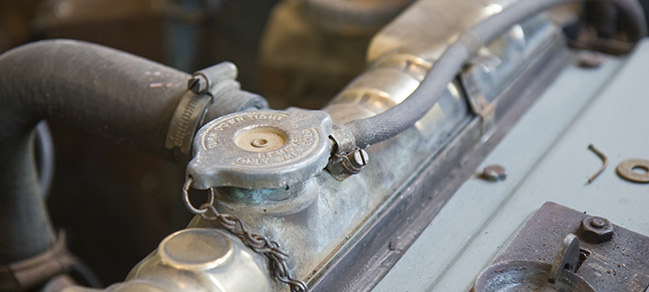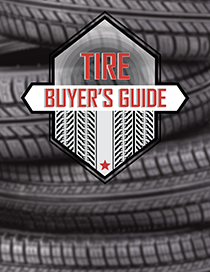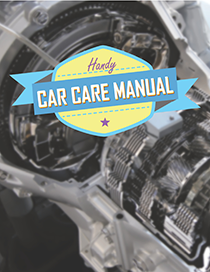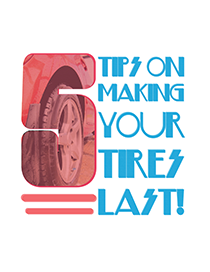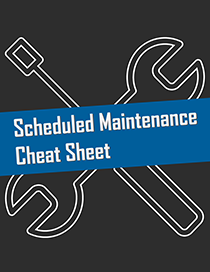Radiator Service
Radiator service is extremely important to the proper functioning of your vehicle. The many moving parts of an engine create friction, which in turn creates heat. The job of the radiator is keep the engine cooled down. Vehicle radiators cool everything under the hood to help prevent overheating and to keep serious issues from developing. The radiator pumps a mixture of water and antifreeze through the chambers in your engine. This absorbs the excess heat, keeping your engine cool and running efficiently.
Coolant, or antifreeze, absorbs heat from the engine and circulates it through the radiator. It is also distributed through the heat exchanger when you use the vehicle’s heating system. As miles accumulate, deposits that can clog the cooling system will collect in your vehicle’s radiator. Radiator service that includes a coolant flush and fill will remove these deposits and prevent overheating, which is the most common cause of radiator problems, engine damage, and breakdowns. Your owner’s manual will provide recommendations for your vehicle, but it is usually recommended for most vehicles that coolant be changed seasonally, and fluids replaced every 30,000 miles.
Symptoms that you may need radiator service:
- Steam coming from the motor
- Indicator / warning lights illuminate
- Temperature gauge indicates vehicle is running hotter than normal
- Signs of fluid leakage or loss
Our expert technicians will:
- Thoroughly inspect the coolant/antifreeze system
- Repair and/or replace radiator or other any components as necessary
- Replace old coolant/antifreeze with new fluid
If you suspect your vehicle may be having radiator problems or issues with overheating, let our professionals check out your system. Contact us today to set an appointment.
What makes radiator service and coolant flushes important?
Coolant experiences rapid break down because it functions in a hot and hostile environment. While some corrosion will take place, even with rust inhibitors, when those rust inhibitors become depleted, the cooling passages in the engine and radiator are subjected to severe corrosion. The engine block is the primary source of rust in a car’s cooling system. Fragments of rust will clog radiator and heater passages, causing your engine to overheat. If coolant is not regularly checked, the rust inhibitors fail, and the cooling system rusts from the inside out.

